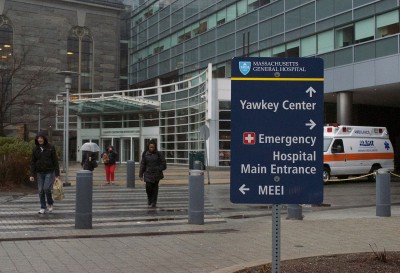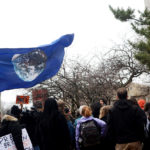
The Centers for Disease Control and Prevention began to investigate and research an outbreak of fatal bacterial infections among the City of Boston’s homeless population Wednesday, according to Marjorie Nesin, spokesperson for the Boston Public Health Commission.
According to the CDC website, several pathogens can cause bacterial meningitis, which is usually severe and can cause complications such as brain damage, hearing loss or learning disabilities. Treatments for the illness include vaccinations and antibiotics.
Nesin said the investigation began after the CDC became aware of the cluster of meningococcal cases among the homeless population in Boston, which were similar to those the CDC had seen before.
“The CDC was aware of this cluster of cases because the vaccines originated in Atlanta,” Nesin said. “Our last case onset was March 4.”
Nesin said the investigation will help to prevent further outbreaks by determining risk factors to eliminate.
“The CDC is developing new guidelines about handling meningococcal clusters,” Nesin said. “They wanted to see if they could identify risk factors for disease from our current situation, and we agreed.”
Nesin also wrote in an email that there is no immediate need for the rest of the population to worry about the risk of contracting the disease.
“There’s no risk to the general public,” Nesin wrote. “The germ requires close face to face contact over a period of hours to be transmitted to someone else.”
According to Nesin’s email, the Boston Health Care for the Homeless Program provides vaccines and antibiotics to those infected and to those who might have come in close contact with the bacteria.
“BHCHP has vaccinated nearly 2,000 people,” Nesin wrote in the email. “We also have additional vaccines available for staff and guests who have concerns.”
Nesin wrote in the email that there have been five cases of disease among Boston’s homeless.
A primary concern of the BHCHP and the BPHC is discovering the location of who might be infected, according to Nesin’s email.
“We’re working with community partners to identify those who had close contact to the most recent case so those individuals can be given a dose of preventive antibiotic,” Nesin wrote in the email.
Bill Hanage, a professor at the Harvard University School of Public Health, wrote in an email that this situation exemplifies the necessity for improved health care.
“This is a great example of the consequence when people need health care, including care to prevent disease, not just treat it, but are excluded for financial or social reasons,” Hanage wrote in the email.
Hanage wrote that he hopes the CDC will be able to address the situation with a vaccine to avoid more public health problems.
“This is not only a problem for public health because these are fellow human beings, but because sick people can transmit the disease onwards to others,” Hanage wrote. “Hopefully we will be able to address this with a vaccination catch-up.”
Several Boston residents expressed support for the CDC’s investigation.
David Hanson, 32, of South Boston, expressed support for the investigation.
“I’m glad that they’re trying to fix it, of course,” he said. “It’s really sad to me that it’s affecting the homeless. I guess it really says something about our health care and the way we treat our homeless here in America.”
Caitlin Daley, 32, of the North End, said the investigation is a good thing because it would benefit underprivileged populations.
“The homeless are an underserved population, so it’s definitely important that their health is being taken into consideration,” she said.
Tachin Chang, 59, of the South End, expressed concern that the case could affect the population on a large scale.
“This will greatly benefit public health,” he said. “Since Boston is a smaller city, sicknesses probably spread faster. So if disease is spreading among the homeless, it might quickly spread and affect everyone else too.”




